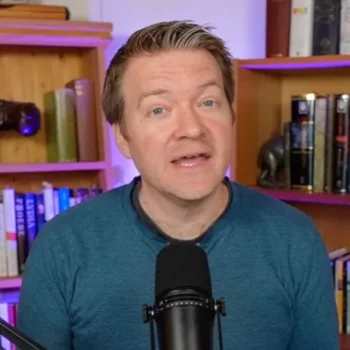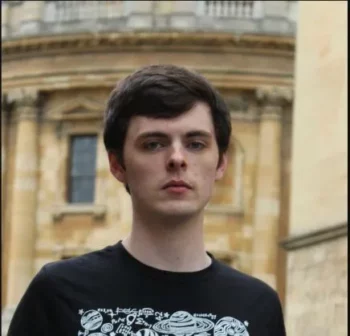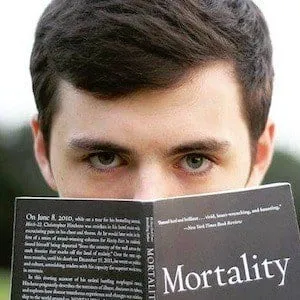The “Cosmic Atheist,” the potty-mouthed podcaster who loathed faith in God with boatloads of derision, is no longer an atheist. He has dropped the channel name and now uses just his name Alex O’Connor on YouTube and elsewhere.
“I’m not (the Cosmit Atheist) anymore,” Alex told Chris Williamson. “I’m pretty suspicious of materialism because of consciousness. It blows my mind.”
Materialism, in philosophy, is the belief that physical matter is the only fundamental reality. All phenomena, including consciousness, results from material interactions. Materialists believe that everything can be explained through physical processes and scientific laws.

Formerly, O’Connor took the UK’s intelligentsia by storm as a protégé of the so-called New Atheists, including Christopher Hitchens, Richard Dawkins and others. He was the junior partner to the “Four Horseman of the Atheist Apocalypse” who poured gallons of condescending disdain upon the existence of God. The New Atheism caused a frenzy in the early 2000s. Taking advantage of the advent of the Internet, the Four Horsemen fired a continuous stream of skepticism towards religion.
“I was so young,” he told Justin Brierly. “I had no idea what I was talking about.”
“My videos performed well,” he adds. “But in terms of the argumentative quality, I look back now and think they weren’t very good… I made a video responding to William Lane Craig on the ontological argument, and it’s so clear listening back now that I just didn’t understand it.”
 The ontological argument most often defended by Craig is based on Alvin Plantinga’s modal version of the argument, which uses principles of modal logic (reasoning about possibility and necessity). It can be summarized as follows: 1
The ontological argument most often defended by Craig is based on Alvin Plantinga’s modal version of the argument, which uses principles of modal logic (reasoning about possibility and necessity). It can be summarized as follows: 1
Definition of God: God is defined as a maximally great being—a being that is omnipotent, omniscient, and morally perfect in all possible worlds.
Possibility Premise: It is possible that a maximally great being exists (this does not claim actual existence yet, only the possibility).
Modal Principle: If it is possible that a maximally great being exists, then such a being exists in some possible world (a hypothetical way reality might be).
Maximal Greatness: If a maximally great being exists in some possible world, then He must exist in every possible world. (This is because maximal greatness includes necessary existence—existing in all possible worlds.)
Conclusion: Therefore, if He exists in every possible world, He exists in the actual world.
Therefore, God exists.
O’Connor is not a Christian; he now considers himself agnostic. He has backed off his previous assertions of atheism, admitting they were childish and, in some cases, a maladroit bungling of the arguments for theism.
After launching his YouTube channel as a teen, he went to Oxford University, where he got a degree in philosophy and theology. He also became a vegan, almost to the point of making it his system of morality.
As the years wore on, he reflected on his previous bad boy image of putting others down for their faith. He mulled the consequences of wrecking people’s faith.
“I would receive emails and messages from people who say, ‘I saw your video about free will and it convinced me there’s no free will. But I’m in a bit of an existential crisis about it. How do you live like that?’
Or sometimes people just saying, ‘I’ve lost my faith in God. But it was so meaningful to me that I don’t know what to do with myself.’”
Jesus commented on those who would undermine the faith of a young person.
“If anyone causes one of these little ones—those who believe in me—to stumble, it would be better for them to have a large millstone hung around their neck and to be drowned in the depths of the sea.” Matthew 18:6
If you want to know more about a personal relationship with God, go here
Related content: Atheism kills, Francis Collins, John Lennox, the impossibility of chemical evolution, how love for a baby exposed her atheism.
About the writer of this article: Morgan Miles studies at Lighthouse Christian Academy near Venice, CA.
1 from ChatGTP





[…] content: the Cosmic Atheist is no longer atheist, the Oxford prof who debates the New Atheists, the impossibility of […]
Comments are closed.